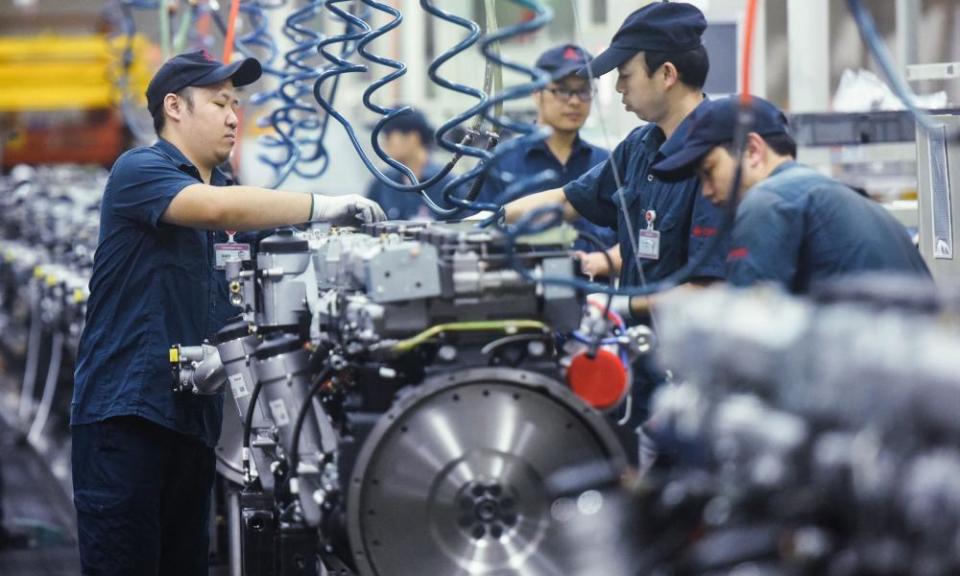Poor countries mustn’t open up economies until they are strong

Only after building strong industries can countries safely open up to international competition, says Richard Ross, and power imbalances are keeping people poor, writes Benny Dembitzer
Your editorial cites India and China as countries that opened up their economies gradually to international competition (The Guardian view on the WTO talks: poor countries can’t be kept poor, 29 November). This has been the way to development of pretty well all countries.
Japan’s economic miracle after the second world war was based on protecting its economy with quotas and import tariffs, and directing investment to industries such as motor vehicles and electronics to enable them to develop, safe from competition. Only when these industries were strong were their firms permitted to enter international markets. Other Asian countries such as South Korea and Taiwan followed suit.
The siren cry of the rich countries is for less developed countries to open up their economies – that is not the route to development but to continued exploitation. They should follow the example of the first industrial nation, Britain, which strongly controlled trade, prices and investment until the middle of the 19th century. Only after building strong industries can countries safely open up to international competition.
Richard Ross
London
• Your editorial says: “Perhaps it would be better for developing countries to eschew imports and use state power to stimulate local production instead – thus obviating the need for external finance.” That could be done, but it isn’t happening. The poorest people in the world’s poorest countries have become poorer, not progressed, in the last 25 years. The global figures are grossly distorted by the enormous changes that have occurred in China’s economic performance, not in the rest of the poor world. And at the national level, the data is that produced by the World Bank and the IMF, measuring what is measurable in monetary returns to the financial community.
There is not one common economic engine that fires up the whole world. What drives China does not drive the UK, and what drives the UK does not drive Malawi. Some poor countries still rely on exports. Under the present rules, Malawi has to produce more and more tobacco to gain foreign currency. But hundreds of thousands of its people live below the poverty line. It cannot give them the priority they need to survive.
Our policies are impoverishing the poor world and preventing its people from getting out of poverty. It is not capitalism; it is power imbalances.
Benny Dembitzer
Grassroots Malawi
• Have an opinion on anything you’ve read in the Guardian today? Please email us your letter and it will be considered for publication.

 Yahoo Finance
Yahoo Finance 